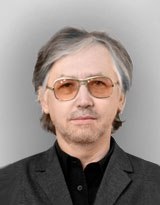Section “Genetics and systems biology of aging”
The section “Genetics and systems biology of aging” invites specialists from various fields of biology (genomics, epigenetics, metabolomics, biology of aging, bioinformatics, physiology, pharmacology) who use a systematic approach to studying various aspects of aging and lifespan in humans and animals.
Research, the ultimate goal of which is to control the aging process, focused on elucidating the molecular and genetic basis, on the one hand, of longevity, on the other hand, of accelerated aging, identifying its prerequisites at a young age and finding ways of correction in the direction of successful aging. The development of age-related diseases at an earlier age seen as a manifestation of accelerated aging, and at a later age, it becomes the basis for successful aging and longevity.
The pathogenesis of age-related diseases based on changes characteristic of aging, but the mechanisms of transition from “healthy” aging to the development of age-related diseases remain unclear. The development of “omics” technologies accompanied by an extensive growth of data sets on age-related changes in various species of living beings and humans, which need to systematized.
The reductionist approach, which declares certain causes to be the main mechanisms of aging, has turned out to be ineffective. Explaining the functional changes associated with aging requires a multidisciplinary approach and the application of methods for studying complex stochastic systems. Analysis of the interaction of components of biological systems is part of the methodology of systems biology.
Chairs
 |
 |
| Nataliya G. Kolosova, Institute of Cytology and Genetics SB RAS, Novosibirsk, Russia |
Elena G. Pasyukova, National Research Center “Kurchatov Institute”, Moscow, Russia |
 |
 |
| Alexey Aleksandrovich Moskalev, Research Institute of Biology of Aging, The National Research State University of Nizhny Novgorod “Lobachevsky State University of Nizhny Novgorod”, Nizhny Novgorod, Russia |
Alexander N Khokhlov, Lomonosov Moscow State University, Moscow, Russia |

